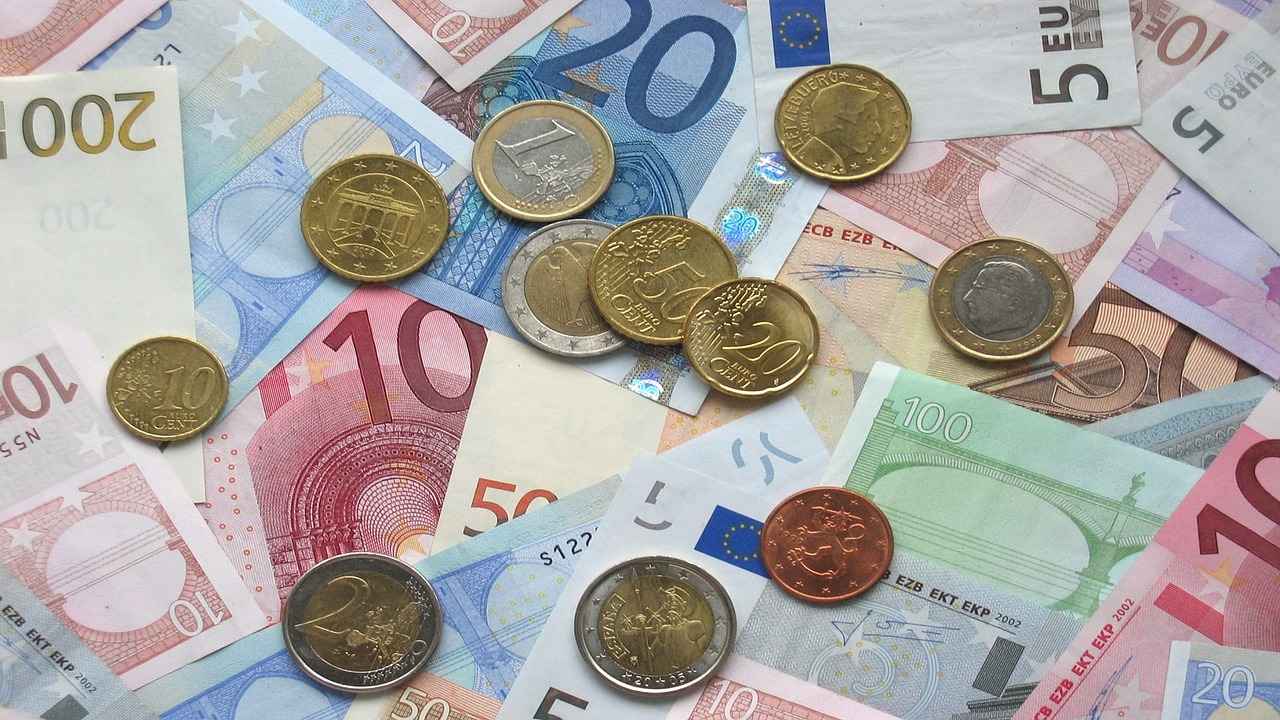Debt can be overwhelming, but consolidation offers a path to regain control over your finances. This article delves into effective strategies for consolidating debt through loans, equipping you with the knowledge to make informed financial decisions.
Understanding Debt Consolidation
Debt consolidation refers to the process of combining multiple debts into a single loan. This approach simplifies your repayment process and may lead to lower interest rates. By understanding how debt consolidation works, you can appreciate its relevance in managing personal finances and alleviating stress associated with multiple payments.
Types of Debt Consolidation Loans
- Personal Loans: Unsecured loans that can be used for various purposes, including debt consolidation. They often come with fixed interest rates.
- Home Equity Loans: These loans allow you to borrow against the equity in your home, typically offering lower interest rates.
- Balance Transfer Credit Cards: These cards enable you to transfer high-interest debts to a card with a lower interest rate, often with an introductory 0% APR.
Benefits of Personal Loans for Debt Consolidation
Personal loans can provide a structured repayment plan with fixed monthly payments, making budgeting easier. They often feature lower interest rates than credit cards, which can lead to significant savings over time.
Potential Drawbacks of Personal Loans
While personal loans can be advantageous, they may pose risks, especially for individuals with poor credit. Higher interest rates may apply, making it essential to assess your creditworthiness before applying.
Home Equity Loans and Lines of Credit
Home equity loans and HELOCs (Home Equity Lines of Credit) allow homeowners to leverage their property’s equity. While these can offer lower interest rates, they also put your home at risk if payments are missed.
Balance Transfer Credit Cards Explained
Balance transfer credit cards can be a strategic tool for debt consolidation. They typically offer an introductory 0% APR for a limited period, allowing you to pay off your balance without accruing interest. However, it’s crucial to understand the terms and conditions to maximize the benefits.
Evaluating Your Financial Situation
Before committing to a debt consolidation loan, it’s vital to evaluate your financial health. Assess your income, expenses, and total debt to determine the best course of action.
Choosing the Right Lender
Selecting a reputable lender is critical. Consider factors such as interest rates, fees, and customer service to ensure you choose a lender that aligns with your financial goals.
Creating a Debt Repayment Plan
A well-structured repayment plan is essential for successful debt consolidation. Outline your financial goals and create a strategy that aligns with your lifestyle to stay on track.
Maintaining Financial Discipline Post-Consolidation
After consolidating your debt, it’s crucial to maintain financial discipline. Implementing a budget and managing your finances effectively can prevent you from falling back into debt.

Understanding Debt Consolidation
Debt consolidation is a financial strategy that allows individuals to combine multiple debts into a single loan. This approach can significantly simplify the repayment process, as it reduces the number of monthly payments to just one. By consolidating debts, borrowers may also have the opportunity to secure a lower interest rate, which can lead to considerable savings over time.
Understanding the concept of debt consolidation is crucial in personal finance management. It serves as a viable solution for those struggling to keep track of various payments, due dates, and interest rates that come with multiple debts. By consolidating, individuals can streamline their financial obligations, making it easier to manage their overall budget.
Moreover, debt consolidation can be particularly relevant during times of financial strain. For example, individuals facing high-interest debt from credit cards may find relief by transferring those balances to a consolidation loan with a lower rate. This can not only reduce the total interest paid but also help in paying off the debt faster.
It is essential to note that while debt consolidation offers numerous benefits, it is not a one-size-fits-all solution. Individuals must carefully evaluate their financial situation, including their total debt, income, and credit score, before pursuing this option. Additionally, understanding the terms and conditions of the consolidation loan is vital to avoid pitfalls such as hidden fees or unfavorable repayment terms.
In summary, debt consolidation is a strategic approach to managing multiple debts effectively. With the potential for lower interest rates and simplified payments, it can be a powerful tool in achieving financial stability. However, thorough research and careful consideration are necessary to ensure it aligns with one’s financial goals.

Types of Debt Consolidation Loans
When it comes to managing multiple debts, debt consolidation loans can provide a lifeline. There are several options available, each tailored to different financial situations and needs. Understanding these options is crucial for making an informed decision.
The most common types of loans for debt consolidation include:
- Personal Loans: These are unsecured loans that can be used for various purposes, including debt consolidation. They typically feature fixed interest rates and consistent monthly payments, making budgeting easier for borrowers.
- Home Equity Loans: Homeowners can leverage the equity in their homes to secure a loan. This type of loan often has lower interest rates compared to unsecured loans because it is backed by the property. However, it does come with the risk of losing the home if payments are not maintained.
- Home Equity Lines of Credit (HELOCs): Similar to home equity loans, HELOCs allow homeowners to borrow against their home’s equity. However, they function more like credit cards, providing a revolving line of credit that can be drawn upon as needed. This flexibility can be beneficial, but it may also lead to overspending.
- Balance Transfer Credit Cards: These cards allow users to transfer high-interest credit card debt to a new card with a lower interest rate, often with an introductory 0% APR for a limited time. This can significantly reduce the cost of debt if managed properly.
Each of these options has its own unique features and benefits. For instance, personal loans are generally easier to qualify for, while home equity loans and HELOCs may offer lower interest rates. Balance transfer credit cards can be advantageous for those who can pay off their debt quickly within the promotional period.
Ultimately, the best choice depends on individual circumstances, including credit score, existing debt levels, and repayment ability. Careful consideration of these factors can lead to a more manageable financial future.
Personal Loans for Debt Consolidation
When it comes to managing debt, personal loans have emerged as a popular solution for many individuals seeking financial relief. These unsecured loans are specifically designed to help borrowers consolidate their debts, allowing them to combine multiple payments into a single, more manageable monthly installment.
One of the key advantages of personal loans is their fixed interest rates. Unlike credit cards, which often come with fluctuating rates, personal loans provide borrowers with the certainty of knowing exactly how much they will pay each month. This predictability can significantly ease the stress associated with debt management.
Additionally, personal loans typically offer longer repayment terms, which can further reduce monthly payment amounts. By extending the loan duration, borrowers can alleviate financial pressure and allocate funds to other essential expenses. However, it is essential to note that while lower monthly payments can be appealing, they may also lead to a higher total interest cost over the life of the loan.
Another noteworthy benefit is the potential for lower interest rates compared to existing debts, particularly credit card balances. By consolidating high-interest debts into a personal loan with a lower rate, individuals can save money and pay off their debts more efficiently.
However, it’s crucial to approach personal loans with caution. Borrowers should be aware of their credit scores, as those with poor credit histories may face higher interest rates or may even be denied a loan altogether. Therefore, taking steps to improve one’s credit score before applying can be beneficial.
In summary, personal loans serve as a valuable tool for debt consolidation, offering fixed rates, predictable payments, and the potential for lower overall interest costs. By understanding both the benefits and the risks associated with these loans, individuals can make informed decisions that align with their financial goals.
Benefits of Personal Loans
When considering options for managing debt, personal loans emerge as a viable solution with several advantages. One of the most significant benefits is their ability to offer lower interest rates compared to traditional credit cards. This can lead to substantial savings over time, especially for individuals carrying high-interest credit card debt.
Personal loans typically come with fixed interest rates, which means that borrowers can anticipate their monthly payments without the unpredictability that often comes with credit card interest rates. This stability allows for better financial planning and budgeting. Furthermore, personal loans generally have a defined repayment period, which encourages borrowers to pay off their debts in a timely manner.
Another key advantage of personal loans is the potential to consolidate multiple debts into a single payment. By doing so, individuals can simplify their financial obligations, making it easier to manage their finances. This streamlined approach not only reduces the stress associated with juggling multiple payments but also helps in avoiding late fees and penalties.
Moreover, personal loans can empower borrowers to pay off their debts faster. With lower interest rates and fixed repayment terms, individuals can allocate more of their monthly payments toward the principal amount, thereby reducing the overall debt more quickly. This can be particularly beneficial for those looking to improve their credit score, as timely payments on a personal loan can positively impact credit history.
It is essential to note, however, that while personal loans offer numerous benefits, they also require responsible management. Borrowers should ensure they understand the terms and conditions of their loan and have a clear repayment plan in place to avoid falling back into debt.
Potential Drawbacks of Personal Loans
When considering personal loans for debt consolidation, it is crucial to weigh their potential drawbacks alongside their benefits. While these loans can simplify your financial obligations, they also come with certain risks that may not be immediately apparent.
One of the primary concerns is the interest rates associated with personal loans. Borrowers with poor credit scores often face significantly higher interest rates, which can negate the benefits of consolidation. This can lead to a situation where the total cost of borrowing exceeds the original debts, making it essential to assess your credit situation before applying.
Moreover, personal loans are typically unsecured, meaning they do not require collateral. While this is advantageous for many, it can also lead to higher interest rates and stricter lending criteria. Lenders may evaluate your creditworthiness more rigorously, making it challenging for some individuals to qualify for favorable terms.
Another factor to consider is the loan term. Longer repayment periods may seem appealing due to lower monthly payments, but they can result in paying more interest over time. Shorter terms may offer lower overall costs but can strain your monthly budget. Therefore, understanding the implications of the loan term is vital for making an informed decision.
Additionally, if the loan is not managed properly, it can lead to a cycle of debt. Borrowers may be tempted to accumulate new debts while paying off the old ones, which can create a more challenging financial situation. Establishing a solid repayment plan and maintaining financial discipline is crucial to avoid this pitfall.
In summary, while personal loans can be a useful tool for debt consolidation, they come with risks such as high interest rates for those with poor credit, potential for increased overall debt, and the importance of managing repayment effectively. Understanding these drawbacks is essential for making an informed decision that aligns with your financial goals.
Home Equity Loans and Lines of Credit
Home equity loans and Home Equity Lines of Credit (HELOCs) are popular options for homeowners looking to leverage their property’s equity for financial needs, including debt consolidation. Understanding how these financial products work can empower homeowners to make informed decisions regarding their financial futures.
A home equity loan allows you to borrow a lump sum against the equity in your home, typically at a fixed interest rate. This means you will have predictable monthly payments over a set period. Conversely, a HELOC operates more like a credit card, giving you access to a revolving line of credit based on your home’s equity. You can borrow as needed, but interest rates may vary, often starting lower than traditional loans.
Both options can be beneficial for debt consolidation. By utilizing a home equity loan or HELOC, homeowners can pay off high-interest debts, such as credit cards or personal loans, potentially saving money on interest payments. Below are some key implications to consider:
- Lower Interest Rates: Home equity loans and HELOCs typically offer lower interest rates compared to unsecured debt, making them an attractive option for consolidation.
- Tax Deductibility: In some cases, the interest paid on home equity loans may be tax-deductible, offering additional financial benefits.
- Risk of Foreclosure: Since these loans are secured by your home, failing to repay could result in the loss of your property, highlighting the importance of careful financial planning.
When considering a home equity loan or HELOC for debt consolidation, it’s essential to assess your financial situation thoroughly. Calculate your home equity, evaluate your debts, and consider your ability to repay the new loan. By doing so, you can ensure that you choose the best option for your financial needs.
In summary, home equity loans and HELOCs can serve as effective tools for debt consolidation, provided that homeowners understand the associated risks and benefits. With careful consideration and planning, these options can help streamline debt management and improve overall financial health.

Balance Transfer Credit Cards
can serve as a powerful tool for individuals seeking to manage their debt more effectively. By transferring high-interest balances from one or more credit cards to a new card with a lower interest rate, borrowers can potentially save a substantial amount on interest payments. This section will explore how these cards operate, their benefits, and important considerations for users.
One of the most attractive features of balance transfer credit cards is the introductory 0% APR offer that many issuers provide. This promotional rate typically lasts for a specified period, often ranging from 6 to 18 months. During this time, borrowers can focus on paying down their principal without the burden of accruing interest. This can significantly expedite the debt repayment process and reduce the overall amount paid.
| Feature | Details |
|---|---|
| Introductory Rate | 0% APR for a limited time |
| Transfer Fees | Typically 3% to 5% of the transferred amount |
| Credit Limit | Varies by issuer and creditworthiness |
However, while balance transfer credit cards can provide considerable benefits, they also come with certain risks. If the debt is not paid off before the promotional period ends, the interest rate may spike to a much higher standard rate, which can lead to increased financial strain. Additionally, if users continue to accumulate new charges on their old cards, they may find themselves in a deeper debt situation.
To maximize the benefits of a balance transfer credit card, it is essential to have a clear repayment plan in place. This includes budgeting for monthly payments that exceed the minimum to ensure the balance is cleared before the end of the promotional period. By doing so, individuals can take full advantage of the lower rates and work towards a debt-free future.
How Balance Transfers Work
Balance transfer credit cards are designed to help borrowers manage their debt more effectively by providing an opportunity to transfer high-interest balances from existing credit cards to a new card with a lower interest rate, often featuring a 0% introductory APR for a specified period. This feature allows individuals to focus on paying down their principal balance without the burden of accruing interest during the promotional period.
When you apply for a balance transfer card, you can typically transfer balances from one or more credit cards up to a certain limit. This means that if you have multiple debts, you can consolidate them into a single payment, making it easier to manage your finances. During the introductory period, every payment you make goes directly towards reducing your debt, which can lead to significant savings.
To maximize the benefits of a balance transfer, it is essential to understand the terms and conditions associated with the card. Here are some key points to consider:
- Introductory Period: Most balance transfer offers come with a limited-time promotional period, often ranging from 6 to 18 months. It’s crucial to plan your payments to pay off the balance before the regular interest rate kicks in.
- Transfer Fees: Many credit cards charge a fee for balance transfers, typically around 3% to 5% of the transferred amount. Make sure to factor this into your calculations when deciding if a transfer is worthwhile.
- Credit Limit: Ensure that the credit limit on the new card is sufficient to cover the balances you wish to transfer. If not, you may not be able to consolidate all your debts.
- Post-Transfer Spending: Avoid the temptation to accumulate new debt on the old cards after transferring the balance. This could lead to a cycle of debt that negates the benefits of the transfer.
In summary, balance transfer credit cards can be a powerful tool for managing debt when used wisely. By taking advantage of the 0% APR offer, individuals can reduce their financial burden and work towards becoming debt-free more efficiently.
Risks of Balance Transfer Cards
When considering balance transfer credit cards as a method for consolidating debt, it is essential to recognize the potential risks involved. While these cards can offer a temporary reprieve from high interest rates, improper management can lead to a cycle of increased debt, making it crucial to approach them with caution.
One of the primary pitfalls of balance transfer cards is the temptation to accrue new charges on the card after transferring existing debt. Many individuals mistakenly believe that they can use the card for new purchases without consequences. This behavior can quickly lead to a situation where the balance grows, negating the benefits of the transfer. To avoid this, it is important to limit usage of the card strictly for the transferred debt until it is paid off.
Another significant risk is the expiration of the introductory 0% APR period. If borrowers do not pay off the transferred balance before this period ends, they may face high-interest rates on the remaining balance. It is advisable to create a repayment plan that accounts for the duration of the promotional rate, ensuring the debt is eliminated in a timely manner.
| Risk | Solution |
|---|---|
| Accruing New Debt | Limit usage to transferred balance only |
| High Interest After Promotion | Create a repayment plan before the promotional period ends |
| Fees and Charges | Read terms carefully to avoid hidden fees |
Moreover, many balance transfer cards come with transfer fees, which can range from 3% to 5% of the amount transferred. This fee can add to the overall debt if not factored into the repayment strategy. Therefore, it is crucial to calculate whether the savings from lower interest rates outweigh the costs of these fees.
In conclusion, while balance transfer cards can be a valuable tool for debt consolidation, understanding and managing the associated risks is vital. By adhering to a disciplined repayment strategy and avoiding new debt, borrowers can maximize the benefits of these financial products.

Evaluating Your Financial Situation
Before embarking on the journey of debt consolidation, it is crucial to evaluate your financial situation. This step ensures that you make informed decisions that align with your financial goals. Here’s how to effectively assess your financial health:
- Assess Your Income: Begin by calculating your total monthly income. This includes your salary, bonuses, and any additional sources of income such as freelance work or rental properties. Understanding your income will help you determine how much you can allocate towards debt repayment.
- Analyze Your Expenses: Next, create a comprehensive list of your monthly expenses. This should include fixed costs like rent or mortgage payments, utilities, groceries, and discretionary spending. By analyzing your expenses, you can identify areas where you can cut back, allowing for more funds to be directed towards debt repayment.
- Evaluate Your Debt Levels: Take stock of all your debts, including credit cards, personal loans, and any other outstanding obligations. Note the amounts owed, interest rates, and minimum monthly payments. This evaluation will provide a clear picture of your overall debt situation.
- Calculate Your Debt-to-Income Ratio: This ratio is a key indicator of your financial health. To calculate it, divide your total monthly debt payments by your gross monthly income. A lower ratio indicates better financial health, while a higher ratio may suggest that you are over-leveraged.
- Consider Your Credit Score: Your credit score plays a significant role in your ability to secure a favorable debt consolidation loan. Obtain a copy of your credit report and check for any inaccuracies that may be negatively impacting your score. Improving your credit score before applying for a loan can lead to better terms and lower interest rates.
By thoroughly evaluating these aspects of your financial situation, you can gain valuable insights that will guide you in selecting the most suitable debt consolidation loan. This careful assessment not only prepares you for the consolidation process but also sets the stage for long-term financial stability.

Choosing the Right Lender
When it comes to debt consolidation, selecting the right lender is a pivotal decision that can significantly influence your financial journey. The lender you choose will not only impact your overall costs but also determine how smoothly the consolidation process unfolds. Here are some essential factors to consider:
- Interest Rates: One of the most critical aspects to evaluate is the interest rate offered by the lender. Lower interest rates can lead to substantial savings over time. Compare rates from various lenders to ensure you secure the best deal.
- Fees: Be aware of any associated fees, such as origination fees, late payment fees, or prepayment penalties. These can add to the overall cost of the loan, so it’s essential to read the fine print and ask questions if something is unclear.
- Customer Service: Excellent customer service can make a significant difference in your experience. Look for lenders that provide responsive support and clear communication. Reading reviews and testimonials can help you gauge the lender’s reputation.
- Loan Terms: Different lenders offer varying loan terms, including repayment periods and flexibility. Ensure the terms align with your financial situation and goals. A longer repayment period may lower monthly payments, but it could also result in paying more interest over time.
- Approval Process: Understand the lender’s approval process, including the required documentation and timeline. A lender with a straightforward and quick approval process can alleviate stress during consolidation.
By carefully evaluating these factors, you can make an informed decision that not only simplifies your debt repayment but also sets you on a path toward financial stability. Remember, the right lender will support you in achieving your financial goals and provide guidance throughout your debt consolidation journey.

Creating a Debt Repayment Plan
Creating a debt repayment plan is a crucial step for anyone considering debt consolidation. A well-structured plan not only simplifies the repayment process but also aligns with your financial goals and lifestyle. Here are some essential steps to guide you in crafting an effective repayment strategy.
- Assess Your Current Financial Situation: Begin by evaluating your total debt, monthly income, and essential expenses. This will provide a clear picture of your financial health and help you determine how much you can allocate towards debt repayment.
- Set Clear Financial Goals: Define what you want to achieve with your debt repayment plan. Whether it’s becoming debt-free within a specific timeframe or reducing monthly payments, having clear goals will keep you motivated.
- Choose a Repayment Method: There are various methods to consider, such as the debt snowball or debt avalanche methods. The debt snowball method focuses on paying off the smallest debts first, while the debt avalanche method targets high-interest debts. Choose the one that fits your style.
- Create a Monthly Budget: Develop a budget that includes your debt repayment plan. Allocate a specific amount each month towards your debts, ensuring that you also cover essential living expenses.
- Track Your Progress: Regularly monitor your repayment progress. This will help you stay accountable and make adjustments if needed. Celebrate small victories to maintain motivation.
- Stay Committed: Maintaining discipline is key. Avoid accumulating new debts and stick to your repayment plan. Consider setting up automatic payments to ensure you never miss a due date.
By following these steps, you can create a solid repayment plan that not only aids in effective debt consolidation but also fosters a healthier financial future. Remember, the goal is to align your repayment strategy with your overall financial objectives, ensuring sustainable progress.

Maintaining Financial Discipline Post-Consolidation
After successfully consolidating your debt, the next critical step is to maintain financial discipline. This is essential to prevent falling back into the cycle of debt that many individuals experience. Here are some effective strategies to help you stay on track:
- Create a Realistic Budget: Begin by outlining your monthly income and expenses. Allocate funds for necessary expenses such as housing, utilities, and groceries before designating amounts for savings and discretionary spending. A well-structured budget can help you visualize where your money goes and identify areas to cut back.
- Set Up an Emergency Fund: Life is unpredictable, and having a financial cushion can prevent you from resorting to credit cards in times of need. Aim to save at least three to six months’ worth of living expenses in a separate account to provide peace of mind and financial security.
- Track Your Spending: Use apps or spreadsheets to monitor your daily expenses. Keeping an eye on your spending habits can help you stay accountable and make adjustments when necessary. Regularly reviewing your financial activity encourages responsible spending.
- Limit Credit Card Use: While credit cards can be useful for building credit, they can also lead to overspending. Consider using cash or debit for everyday purchases to avoid accumulating unnecessary debt.
- Automate Payments: Set up automatic payments for your consolidated loan and other bills. This ensures you never miss a payment, helping you maintain a positive credit score and avoid late fees.
- Regularly Review Financial Goals: Schedule periodic check-ins to assess your financial situation and adjust your budget as needed. Setting short-term and long-term financial goals can keep you motivated and focused on your financial health.
By implementing these strategies, you can foster a responsible financial mindset, ensuring that your journey towards debt freedom is sustainable and productive. Remember, discipline is key to maintaining your financial health and achieving your goals.
Frequently Asked Questions
- What is debt consolidation?
Debt consolidation is the process of combining multiple debts into a single loan. This simplifies your payments and can potentially lower your interest rates, making it easier to manage your finances.
- What types of loans can I use for debt consolidation?
You can use various types of loans for debt consolidation, including personal loans, home equity loans, and balance transfer credit cards. Each option comes with its own set of benefits and considerations.
- Are personal loans a good option for debt consolidation?
Yes, personal loans are a popular choice for debt consolidation as they often offer fixed interest rates and predictable monthly payments. However, it’s essential to consider your credit score, as this can impact the interest rates available to you.
- What are the risks of using balance transfer credit cards?
While balance transfer cards can save you money with low or 0% introductory rates, they can also lead to increased debt if not managed properly. It’s crucial to pay off the balance before the promotional period ends to avoid high-interest charges.
- How do I choose the right lender for debt consolidation?
When selecting a lender, consider factors like interest rates, fees, and customer service. Look for lenders that offer clear terms and conditions to ensure you make an informed choice.
- What should I do after consolidating my debt?
After consolidating your debt, it’s vital to maintain financial discipline. Create a budget, track your expenses, and avoid accumulating new debt to stay on the path to financial stability.














